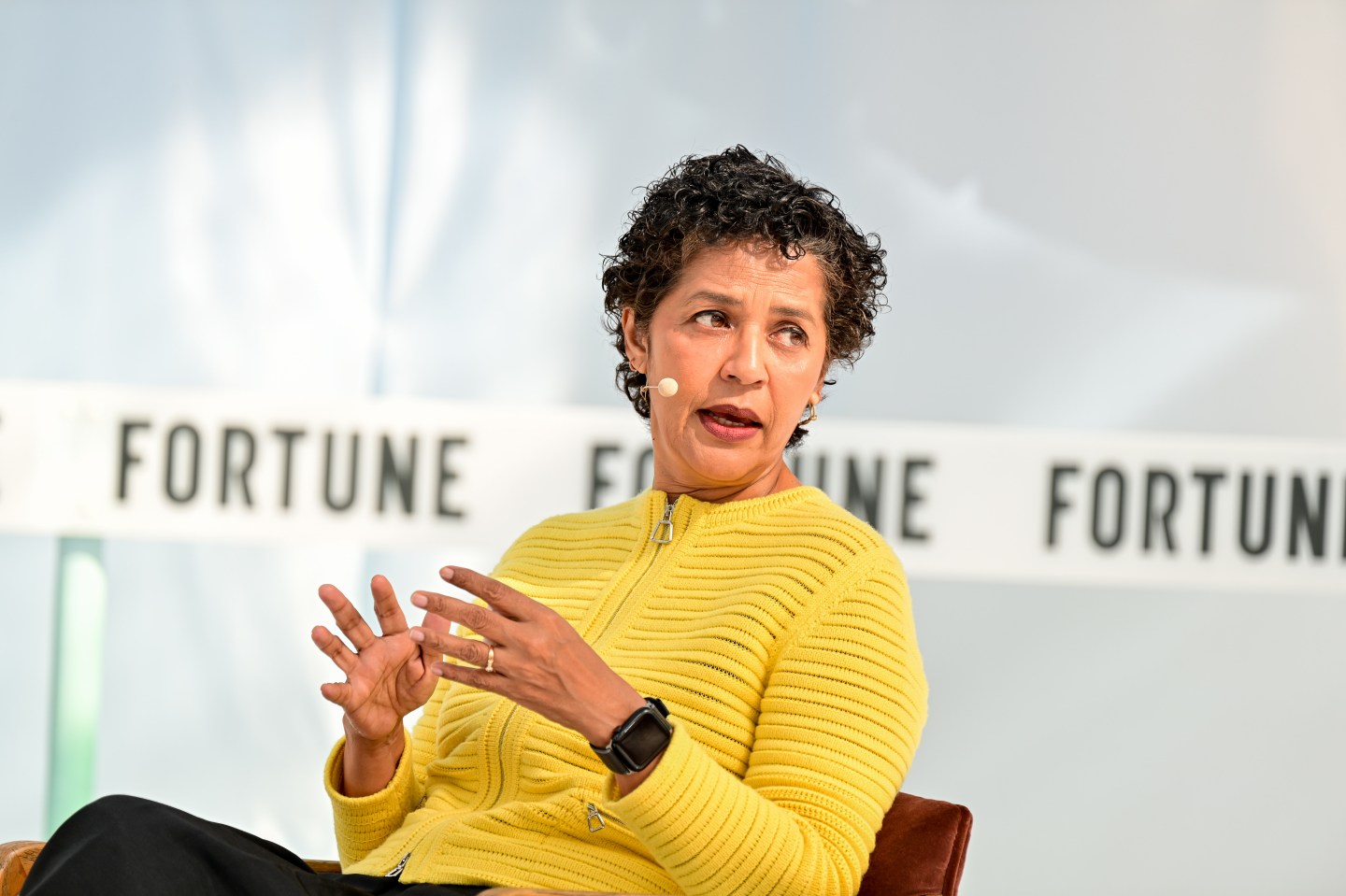In today’s edition: $10 million in USAID contraceptives were destroyed, one of the most successful sports franchise debuts ever, and another day in the life for a global CEO.
At 10 p.m. one night in late August, Revathi Advaithi got a text message. Advaithi is the CEO of Flex, the $25.8 billion manufacturing company. Her team was telling her that one of the company’s manufacturing facilities in Ukraine had been hit by a missile.
Advaithi thought it was a joke at first, she told the audience at Fortune‘s Brainstorm Tech gathering in Park City, Utah, this week. Flex’s facility was in Mukachevo, in the western part of the country—usually far from military activity in the Ukraine-Russia war. She quickly realized it wasn’t a hoax.
Flex was able to evacuate 600 workers in seven minutes. Some employees and contractors were injured and hospitalized, Flex said in a press release about the incident. But no one died; the local team had bomb shelters at the ready.
Advaithi says she’s committed to rebuilding the facility in some form to make sure that “awesome team in Ukraine gets a chance.” (It was responsible for 1% of Flex’s revenue, producing consumer and lifestyle products).

For Advaithi, it was just another day as a global CEO. She was ranked No. 62 on Fortune‘s Most Powerful Women list this year, due to her success repositioning Flex in the manufacturing marketplace. “This is the role of every CEO, right? You never know what’s going to come in the next minute and the next day,” she says. “You have to go with the flow as these things happen.”
Not every day involves a missile strike—but there are plenty of other challenges on Advaithi’s plate. She got Flex into the forward-looking power business, building power cooling and compute for data centers. She’s thinking about reskilling the global workforce, as a CEO responsible for more than 100,000 workers around the world, many of whom work manufacturing jobs. She’s got a viewpoint on President Trump’s efforts to bring manufacturing back to the U.S. (cell phones will never be made here, she argues) and wants those jobs to be higher-skilled.
Meanwhile, Advaithi battled breast cancer, as she recently revealed. She wants more women to enter the manufacturing workforce, too. “It’s going to take a lot of work,” she says—and it won’t come solely from a C-suite mandate.
Emma Hinchliffe
emma.hinchliffe@fortune.com
The Most Powerful Women Daily newsletter is Fortune’s daily briefing for and about the women leading the business world. Subscribe here.
ALSO IN THE HEADLINES
Almost $10 million worth of birth control pills and IUDs designated by USAID for people in low-income countries have been destroyed at the direction of the Trump administration. Other organizations including the Gates Foundation had offered to buy or receive donations of the contraceptives from the federal government, which declined the offers. New York Times
Ivanka Trump is working with the CEO of Chobani on a food waste initiative. The pair wrote an op-ed for Fortune about how to limit food waste and repurpose existing harvests. Fortune
Eight centers supporting refugees returning to Afghanistan shut down. Because the Taliban wouldn't permit female aid workers to staff the facilities. Reuters
The Golden State Valkyries are finishing their first season, and they could already be on the way to becoming the first $1 billion women's basketball franchise. The team has had one of the most successful debuts for a sports franchise, ever, thanks to good timing, a strong local fan base in the Bay Area, and smart marketing moves. Bloomberg
ON MY RADAR
The defiance of Olivia Munn Bustle
Won't someone think of the men? The Cut
With I Love LA, Rachel Sennott keeps her cool New York Times
PARTING WORDS
"I want people to realize that you’re not your mistakes. People will always judge you off your worst moments, but you don’t have to pay attention to that. You’re allowed to grow."
— Minnesota Lynx star Courtney Williams on her path to the WNBA












